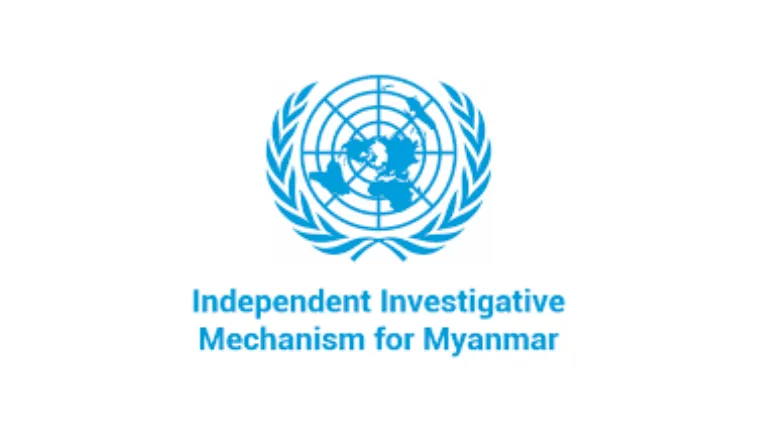The fight for justice: five years since the violence that led to large-scale displacement of the Rohingya from Myanmar
25 August 2022

Statement by Nicholas Koumjian, Head of the Independent Investigative Mechanism for Myanmar
Geneva, 25 August 2022 – Five years ago today, a wave of violence uprooted most of the Rohingya population of Rakhine state in Myanmar. Men, women and children were forced to flee from their homes, many losing their livelihoods and loved ones. About three-quarters of a million Rohingya, more than half of them children, escaped across the border to Bangladesh where they now remain.
While the scale of the 2017 displacement is particularly shocking, we must not forget the estimated 130,000 Rohingya who remain confined to makeshift camps in Myanmar following deadly violence a decade ago, and the tens of thousands more that were displaced during the waves of violence in-between. Every one of these events is a tragedy. But the greatest tragedy is that the Rohingya are still waiting to return home, and with every day that passes their suffering grows.
Justice is one critical step to enable a safe and dignified return home. However, those that are responsible for the crimes against the Rohingya have still not been held to account. At the Independent Investigative Mechanism for Myanmar, we are working to change that. We are contributing to the fight for justice for all the Rohingya that lost their lives, family members and homes. We are collecting evidence of serious international crimes committed against them and others in Myanmar. We are accumulating the proof to identify the individuals responsible for killing and displacing innocent civilians, as well as those who fueled and facilitated such horrors with their words, money or authority.
At the Mechanism we know that the wheels of international justice can turn very slowly, which only increases the suffering for the victims of crimes. We are doing all we can to produce results as fast as possible. But we cannot do this alone. The Mechanism has no authority to compel cooperation from any individual, entity or state. We cannot arrest anyone. We cannot hold our own trials. Rather, our mandate is to provide evidence to courts or tribunals who have jurisdiction over such crimes now or in the future, so that judges have what they need to determine the truth of what happened. To do this, we rely on the cooperation of individuals, businesses, civil society organizations and governments to share information with us and to facilitate our investigations.
Access to witnesses and victims is vital for us to piece together the details of crimes against Rohingya and so many others in Myanmar. To those who witnessed or suffered from such crimes – your experiences are crucial building blocks of our evidence. We invite you to tell us what you saw. And to those that had access to inside information about plans, actions and orders that led to the crimes – tell us what you know. We have processes in place to receive your information confidentially and securely. We are already sharing relevant information – with the consent of those who gave it to us – with the International Criminal Court and the International Court of Justice.
Five years on, the Rohingya face an ongoing tragedy. We must all work together to ensure that perpetrators of the most serious crimes committed against them are brought to justice, and that Myanmar becomes a country to which they can return home and live with safety and dignity.
The Independent Investigative Mechanism for Myanmar (IIMM or Mechanism) was created by the United Nations Human Rights Council in 2018 to collect and analyse evidence of the most serious international crimes and other violations of international law committed in Myanmar since 2011. It aims to facilitate justice and accountability by preserving and organizing this evidence and preparing case files for use in future prosecutions of those responsible in national, regional and international courts.
For more information visit https://iimm.un.org/ or contact [email protected]
Announcements
28 February 2025
Asian NGO Network on National Human Rights Institutions , CSO Working Group on Independent National Human Rights Institution (Burma/Myanmar)
Open letter: Removal of the membership of the dis-accredited Myanmar National Human Rights Commission from the Southeast Asia National Human Rights Institution Forum

Progressive Voice is a participatory rights-based policy research and advocacy organization rooted in civil society, that maintains strong networks and relationships with grassroots organizations and community-based organizations throughout Myanmar. It acts as a bridge to the international community and international policymakers by amplifying voices from the ground, and advocating for a rights-based policy narrative.